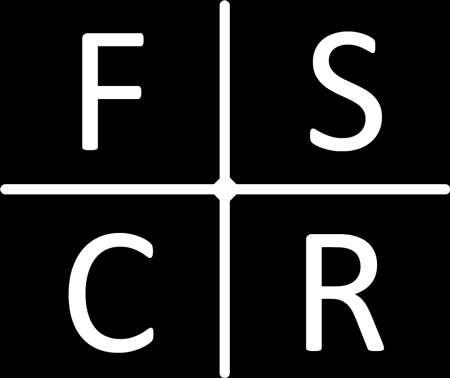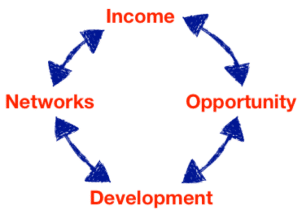‘Unfortunately, I think your position working with the coaches will no longer be tenable’. I had been called to the CEO’s office that afternoon, and my ‘gardening leave’ started straight after that conversation. One week out from Round 1; Only a pre-season in the role. Sure, I had a contract, but what did that matter – the coaches had decided they wanted someone else. So much so, that they preferred to go into the season without an S&C.
Now, this is not a blog about how I was ‘hard done by’, how I was right, and they were wrong, blah blah. That wouldn’t get my job back, and it’s a conversation better had over a few beers! Instead, this is a blog about what you do next, how you make sure you can keep paying the bills – because people come together and find they can’t work together all the time; Funding gets cut or redirected; New coaches bring their own people; A loved one gets sick and you need to return home. Sometimes things just don’t work out, so you need a back-up strategy. Actually, back up STRATEGIES.
We’ll call this back strategy (strategies?) your ‘Plan B’. This Plan B can take a number of forms (and include plans C, D, and E!) and provide many advantages and benefits. Monetary gains are what most people think of initially but can be hard to achieve when you’re already doing 60+ hour weeks. So, playing the long game is important, as is being creative, and leveraging things already at your disposal. Common examples could be:
- What non-S&C skills can you utilise?
- Can you use your employer’s gym or other facilities to train private clients or run workshops?
- Are you designing programs that, modified slightly, can be sold on-line?
- Does your relevant S&C Association run courses that you can deliver?
- Does a local university or college need tutors?
What we’re trying to do here is create extra revenue streams, providing a steady flow of extra income. This extra income might simply be to help with the mortgage or pay for the next family holiday, but it can also be used to fund further education, buy equipment for private work, or establishing a ‘Firehose Fund’.
Particularly relevant to our industry, this ‘Firehose Fund’ is simply a bank account that keeps a certain amount of savings in reserve for when, not if, that fateful day comes. This cash reserve means you can ‘put out any cash fires’ when they arise and keep paying the bills. How much you have in this fund depends on who you speak to, but usually ranges between 6-12 week’s pay.
The most immediate benefit of this is that you still have a few ‘pay days’ up your sleeve while you look for a new job – a huge weight of your shoulders while you deal with the shock and disappointment of losing your job. Further, you can afford to take your time choosing your next role, or even take some time out if you need it.
With your immediate financial needs covered, you’ve got the potential to upscale existing revenue streams, or even explore others, rather than starting from scratch. Beyond this, you’ve also been exposing yourself to different sports, environments, and populations – improving your skills set and increasing the types of sports you have worked with. Personally, I have really enjoyed getting to learn about new sports and finding ways to incorporate and adapt aspects across each of the different sports.
But beware – you need to keep any secondary revenue streams in a positive cost/ reward ratio. Extra money is great, but if it is having a negative effect on your primary job, or robbing you of valuable family time, then it is just not worth it.
Aside from boosting your current income, what actions can you take to prepare yourself for that next big job or promotion? Post-graduate study can be a great option, but there is sometimes more value in deciding on your own study and reflecting on your practice – too often coaches are paying large amounts of money to get qualifications that have little impact on their coaching ability. A great option here can be to go and meet with a coach from a very different sport, and perhaps start coaching under them? Of course, this is an extra time commitment and may not pay anything – but it can really improve your coaching and creates avenues for networking, learning, and employment.
Something that coaches often forget to plan for is the type of job they want once they get older. Working in professional sport is a young man’s game, for the most part, but there are ever increasing opportunities to work as an S&C outside of professional sport – schools, academies, first responder and military organisations, and private facilities. Simply having worked in pro sport doesn’t make you the best candidate for these jobs, however. Each of these populations are very different to professional sport and require different coaching and management strategies.
Working with these groups certainly isn’t as sexy as elite athletes – but they complain a hell of a lot less, and the difference you can make is so much greater, and more tangible. There will always be coaches scrambling to work with the Messi’s and Paul Pogba’s of the world, but the work you do with them isn’t truly life changing like it is when you show a young kid how to have fun with exercise, or help a police officer get back to operational duty after being off work for the last year.
So, look for casual opportunities in these environments, or go and volunteer your time. When a similar role does come up, you’re already ahead of the majority of coaches. In the meantime, you’ve possibly given yourself an extra revenue stream. I decided I wanted to be called a speed coach – so I applied for a job with a local speed school, and now run 2-3 sessions a week. I have baseballers, footballers, teenagers, kids, males, and females. It’s extra income and will should serve me well if I when I try and get a job with an academy or school in the future. It’s not always easy after a full day’s work, but I’m never disappointed after getting to see the kids have fun and improve – and I always leave with more questions than answers.
Wrapping up all of this, are strong networks – both in and OUT of professional sport – especially those that work in similar fields. Associating with a variety of people makes you adept at working with a variety of people, but also increases your chances of learning, broadens the net of people that you can call on to solve problems, and also more varied employment opportunities. Many coaches are now joining or creating communities or interest groups (like this one!), which are fantastic for creating relationships, discussion, and resource sharing.
I’d always been one to look for extra hours or jobs to make a bit more cash on the side – then when I got my first full-time role as an S&C I still had commitments that I wanted to finish. With a low starting salary, I couldn’t afford not to continue working elsewhere, and I didn’t know any different anyway! The tenuous nature of professional sport also meant I was always conscious of keeping my options open – but it wasn’t until some career setbacks and some good guidance that I developed a targeted plan of attack.
Rewinding back to that day, by the time my fiancé had got home from work, I already had coaches in my network contacting me about opportunities they knew of, or people they were connecting me with. They were ringing and texting to show their support and make sure I was ok. I also knew that I had enough money in the bank for the next little while, and a bit of extra cash coming in from private clients. My confidence as a coach had taken a huge hit – but I knew money was covered for the short term, and I was already updating my CV for 2 or 3 jobs I’d been connected with.

